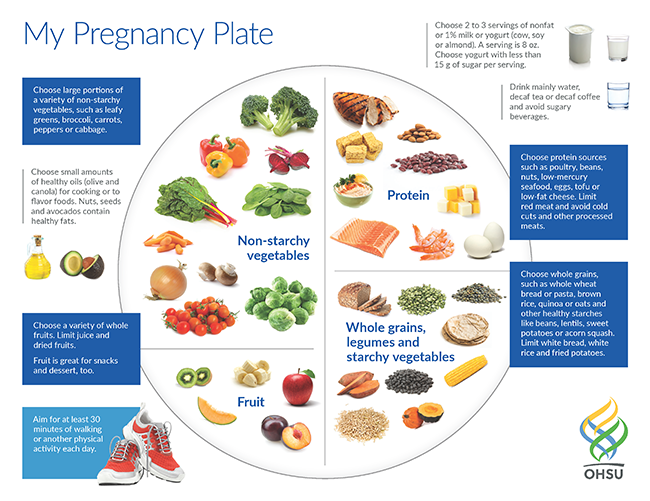
Pregnancy Nutrition: A Comprehensive Guide for Expecting Mothers
Pregnancy is a transformative journey that requires significant nutritional support to ensure the optimal health and development of both the mother and the growing baby. A well-balanced diet during pregnancy provides the essential nutrients and energy needed to sustain the increased metabolic demands, support fetal growth, and prepare the body for labor and delivery. This comprehensive guide will delve into the specific nutritional requirements, dietary recommendations, and potential risks associated with pregnancy nutrition.
Nutritional Requirements During Pregnancy
The nutritional needs of pregnant women increase substantially compared to non-pregnant individuals. The recommended daily intake (RDI) for key nutrients during pregnancy includes:
- Protein: 71 grams
- Iron: 27 milligrams
- Calcium: 1,000 milligrams
- Vitamin D: 600 IU
- Folic acid: 600 micrograms
- Vitamin B12: 2.8 micrograms
- Omega-3 fatty acids: 200 milligrams
These nutrients play crucial roles in various aspects of pregnancy, including fetal growth, tissue repair, blood production, and brain development.
Dietary Recommendations for Pregnant Women
To meet the increased nutritional demands, pregnant women should follow a balanced diet that includes a variety of nutrient-rich foods from all food groups. The following recommendations provide guidance on healthy eating during pregnancy:
- Fruits and vegetables: Aim for at least five servings per day, choosing a variety of colors and types to ensure a wide range of vitamins, minerals, and antioxidants.
- Whole grains: Include at least three servings per day to provide fiber, energy, and B vitamins.
- Lean protein: Choose lean meats, poultry, fish, beans, and lentils to meet protein requirements and support fetal growth.
- Dairy products: Consume three servings per day to provide calcium, protein, and vitamin D, which are essential for bone health and fetal development.
- Healthy fats: Include healthy fats from sources such as olive oil, avocados, and nuts to support brain development and provide energy.
Foods to Avoid During Pregnancy
While most foods are safe to consume during pregnancy, certain foods should be avoided or limited due to potential risks to the mother or the baby. These include:
- Raw or undercooked meat, poultry, and seafood: May contain harmful bacteria or parasites.
- Raw or unpasteurized milk and cheese: May contain bacteria that can cause infections.
- Fish high in mercury: Limit consumption of fish such as swordfish, shark, and king mackerel, as mercury can harm fetal brain development.
- Alcohol: Alcohol can cross the placenta and reach the baby, potentially causing fetal alcohol syndrome.
- Caffeine: Excessive caffeine intake may increase the risk of miscarriage and low birth weight.
Supplements During Pregnancy
Prenatal vitamins are recommended for all pregnant women to ensure adequate intake of essential nutrients, especially folic acid, iron, and calcium. Other supplements may be recommended by a healthcare provider based on individual needs, such as:
- Omega-3 fatty acids: May support fetal brain and eye development.
- Iron: May be necessary for women with low iron levels or who are carrying multiples.
- Calcium: May be recommended for women who do not consume enough dairy products.
Potential Risks Associated with Pregnancy Nutrition
Improper nutrition during pregnancy can lead to various health risks, including:
- Preeclampsia: A condition characterized by high blood pressure and protein in the urine, which can be caused by inadequate calcium intake.
- Gestational diabetes: A type of diabetes that develops during pregnancy, which can be influenced by excessive weight gain and high sugar intake.
- Low birth weight: Inadequate nutrition can result in babies being born underweight, increasing the risk of health problems.
- Preterm birth: Poor nutrition can contribute to premature labor and delivery.
Monitoring and Support
Regular prenatal checkups with a healthcare provider are essential to monitor nutritional status, identify any potential deficiencies, and provide personalized guidance. Pregnant women should discuss their diet, supplement use, and any concerns with their healthcare provider to ensure optimal nutrition throughout pregnancy.
Conclusion
Pregnancy nutrition is of paramount importance for the health and well-being of both the mother and the developing baby. By following a balanced diet, avoiding certain foods, and considering supplementation as needed, pregnant women can provide the necessary nutrients to support fetal growth, prepare for labor and delivery, and reduce the risk of pregnancy-related complications. Regular monitoring and support from a healthcare provider are crucial to ensure optimal nutritional care throughout this transformative journey.